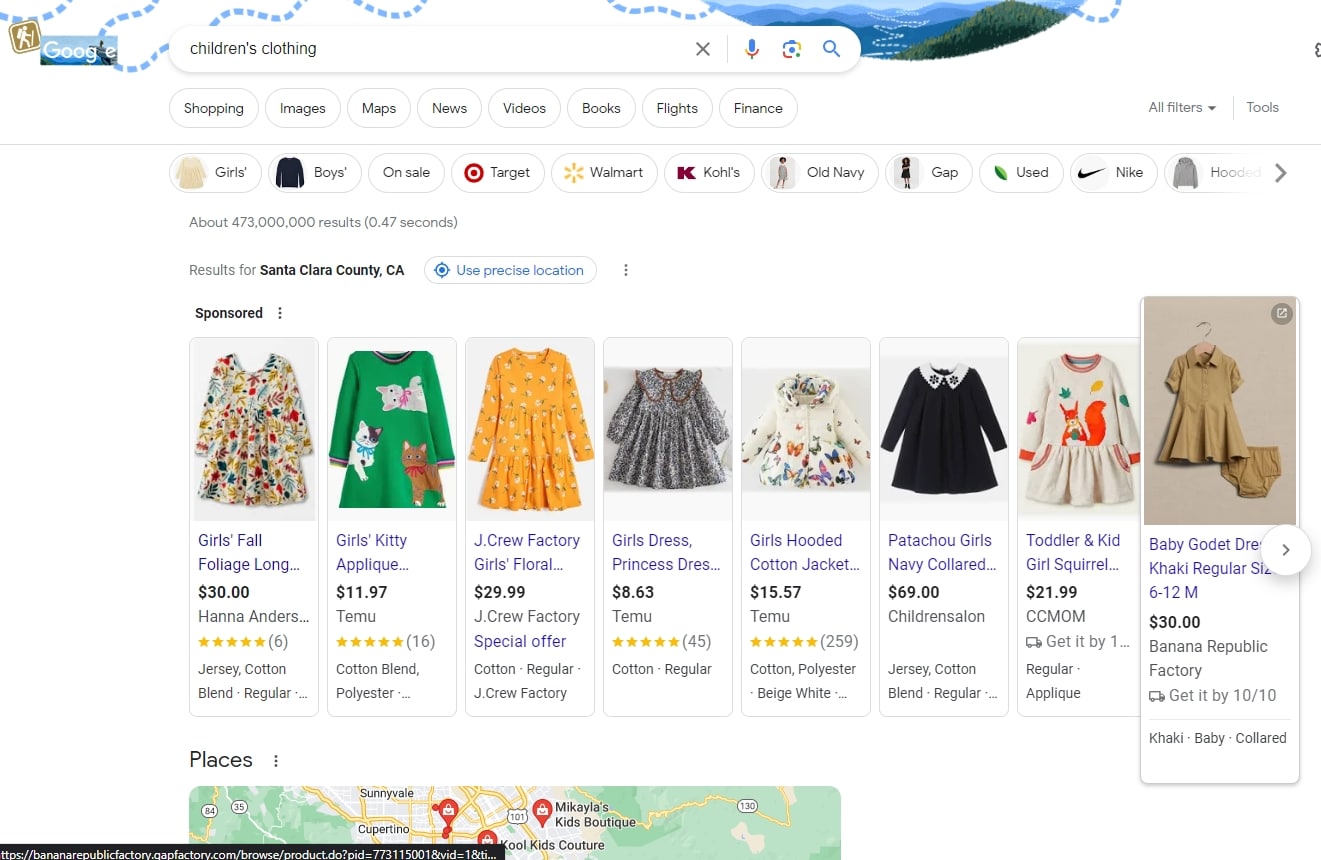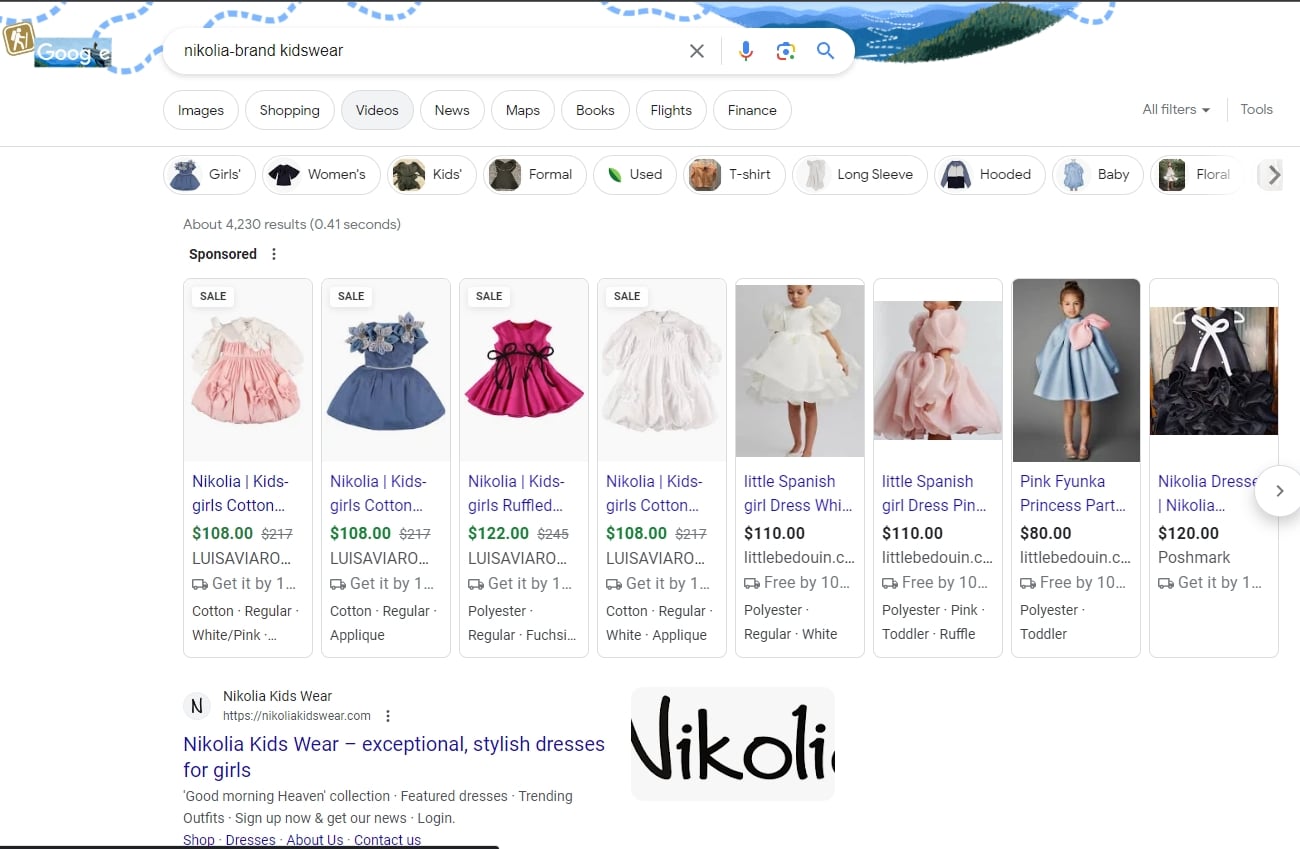This is a comment on an article in Wired Magazine by Megan Gray on 2 October 2023. 
I think the writer has misunderstood how Google Ads work. When you search for “children’s clothing” as per the article’s example, the Google Ads system in the background has millions of ads waiting for such keywords to be typed, then those ads show up in the SERP. The searcher did not specify a brand, so all clothing advertisers who bid for anything close to “children’s clothing” are in the running for their ads to show.
// Here’s how it works. Say you search for “children’s clothing.” Google converts it, without your knowledge, to a search for “NIKOLAI-brand kidswear,” making a behind-the-scenes substitution of your actual query with a different query that just happens to generate more money for the company, and will generate results you weren’t searching for at all.//
This is where she is wrong. The brand she intended to say is spelt “Nikolia”.
If I search for just “children’s clothing”, I get several brands’ ads, as it ought to be.

If I had searched for “Nikolia-brand kidswear”, I get ads for Nikolia clothing by several advertisers, as it ought to be.

Making “more money for the company” is how Google Ads has operated forever. An ad with a high bid and with a high quality score (the landing page best suits the keyword) will make more money for Google than one with a lower bid, ceteris paribus.
Update
Wired has removed the article.
